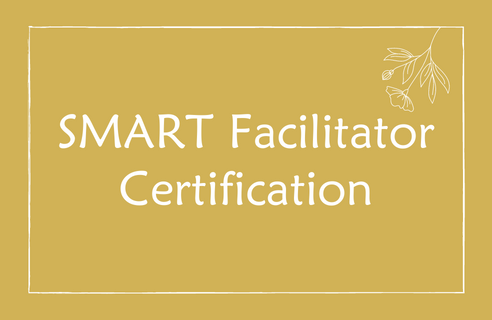
SMART Facilitator Certification Ontario
SMART - A 9-Session Program
smartEducation™ (SMART - Stress Management and Resiliency Techniques) is an evidence-based program designed to address the needs of educators (K-12 and post-secondary), professional support staff and mental health professionals involved in the education and care of children, youth, and young adults, as well as organizations committed to the health and wellness of their staff.
Who Should Attend
- Educational professionals including teachers, educational assistants, child and youth workers, social workers, psychologists, occupational therapists, audiologists and speech-language pathologists, physiotherapists, student support staff as well as administrators and office staff.
- Healthcare professionals who work in community settings.
- Organizational progfessionals interested in offering in-house mindfulness training to staff.
SMART Certification:
- Offers a coherent, stepped approach.
- Integrates formal teaching with workshops/residential mindfulness trainings, skills training and supervision/mentoring.
- Uses the Mindfulness-based Interventions Teaching Assessment Criteria (MBI-TAC) (R. S. Crane et al., 2013) to support SMART facilitator learning and assess competency when teachers graduate from the training program.
- Expects SMART teachers to work within the ethical codes of their professional bodies. If they do not have such a code, training and attention to codes set out by the most relevant professional body are suggested as a safeguard and to promote good practice (Baer, 2015).
- Is evidence-based relying on and generating the best available evidence to inform the training.
SMART Facilitator Certification
Requirements
1. Completion of the following pre-requisites:
- Completion of one online or face to face Mindfulness-Based Stress Reduction course (MBSR) as a participant. Acceptable online course - Palouse Mindfulness http://palousemindfulness.com/
- An established mindfulness practice including meditation and mindful movement
- Experience in managing groups
2. Academic Qualifications:
- Undergraduate degree in education, psychology, health sciences, social work, or equivalent degree, or
- Advanced professional degree and/or equivalent experience
3. Certification (150 hrs)
The program consists of 80-hour facilitator training, 40 hours of practicum, assisting, co-teaching,
20 hours of mentoring instruction, and 10 hours of self-study in SMART program delivery.
- SMART: Attend 9-session course as a participant and complete the course requirements. (20 hrs) MSC-Short course: Attend the 6-session course as a participant and complete the course requirements. (10 hrs)
- 3-Day Foundations: The focus in this course is on the skillset required as a facilitator to safely deliver the SMART program, including guiding practice & mindful movement, inquiry and review of the SMART curriculum. Facilitator Training Notes Manual will be provided. (12 hrs)
- Practicum: During this 9-session interactive course, participants receive feedback, coaching in guiding practice, facilitating discussions, organizing sessions and managing the group (20 hrs) plus Session Preparation (10 hrs) and Mentoring (10 hrs)
- Facilitation & Mentoring: Teaching SMART with a fellow trainee (20 hrs) to your population plus Mentoring (10 hrs)
- Self-Study: Participation in ongoing professional development with Mindfulness Everyday:
- Professional Development Training, Retreats, and Mentoring | directed Self-Study: resources, relevant research and articles.
- Submission of certification documentation, including final exam and reflection paper. (10 hrs) - Guided Silent Retreat: A residential teacher led silent retreat that is a minimum of three to five days in duration to be completed for certification.
Please note that completing the above training components does not guarantee certification. Additional training and or mentoring may be recommended.
